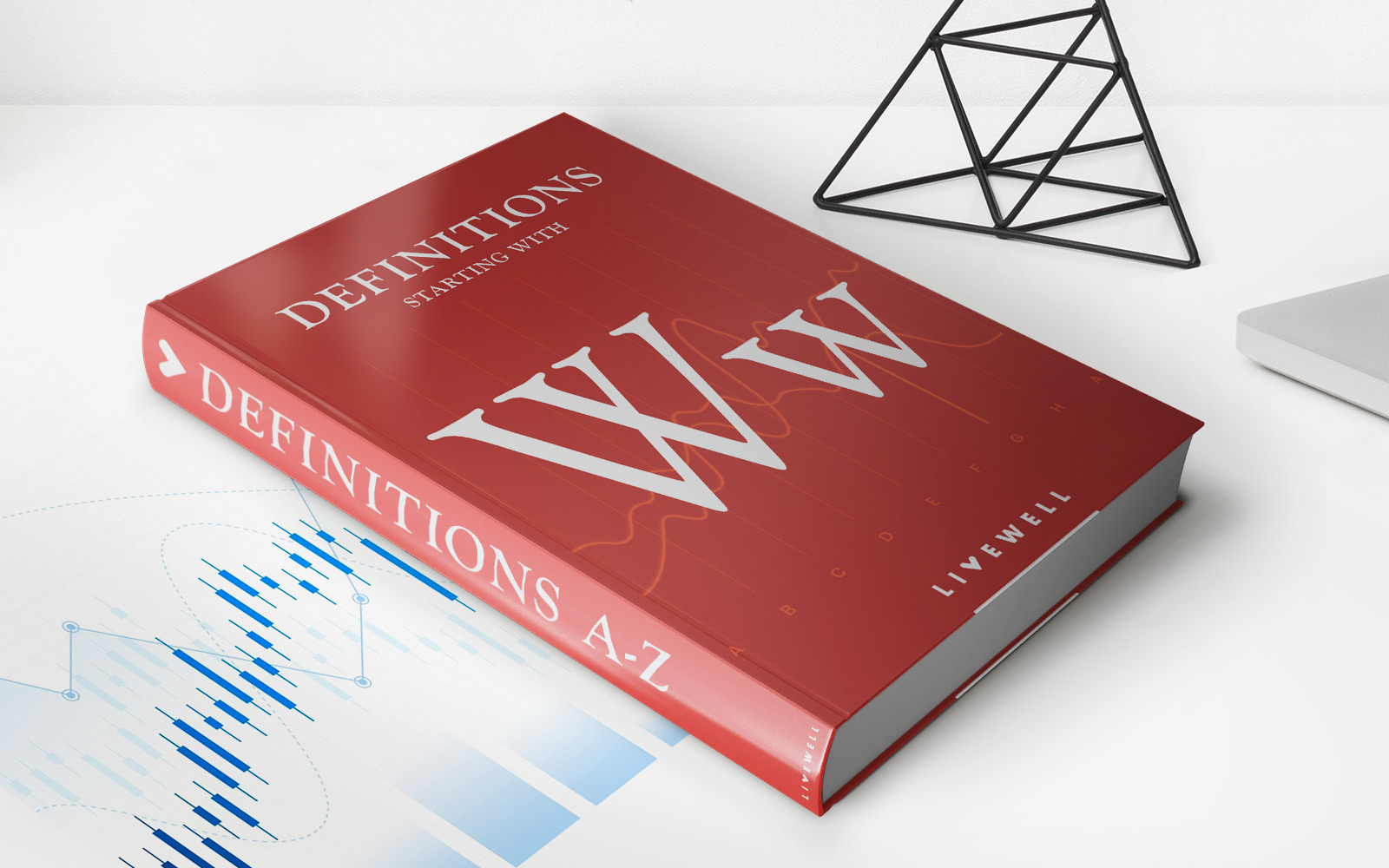

Finance
Why Do I Need Blockchain Certification
Published: October 23, 2023
Gain a competitive edge in the finance industry with a blockchain certification. Learn how blockchain technology can revolutionize finance and enhance your career prospects.
(Many of the links in this article redirect to a specific reviewed product. Your purchase of these products through affiliate links helps to generate commission for LiveWell, at no extra cost. Learn more)
Table of Contents
- Introduction
- Understanding Blockchain Technology
- Benefits of Blockchain Certification
- Increased Job Opportunities
- Verification and Authenticity
- Enhanced Security and Data Privacy
- Industry-wide Recognition
- Importance of Blockchain Certification for Businesses
- Expiry and Renewal of Blockchain Certifications
- Conclusion
Introduction
Welcome to the age of digital innovation, where emerging technologies are revolutionizing industries and transforming the way we live and work. One such technology that has gained significant attention is blockchain. This revolutionary technology has the potential to disrupt traditional systems, create new business models, and enhance cybersecurity.
Blockchain is a decentralized digital ledger that records transactions across multiple computers. It provides transparency, immutability, and security, making it an ideal solution for industries such as finance, supply chain, healthcare, and more. As the adoption of blockchain technology continues to grow, the demand for professionals with expertise in this field is also on the rise.
Blockchain certification has emerged as a valuable credential for individuals looking to establish themselves in the fast-evolving blockchain industry. It certifies that an individual possesses the necessary knowledge and skills to work with blockchain technology. Whether you are a seasoned professional or just starting your career, obtaining a blockchain certification can significantly boost your prospects and open up exciting opportunities.
In this article, we will explore the importance of blockchain certification and why it is essential in today’s digital landscape. We will discuss the benefits of being certified, the job opportunities it can unlock, and its significance for businesses. So, let’s dive in and understand why blockchain certification should be on your radar.
Understanding Blockchain Technology
Before delving into the importance of blockchain certification, it’s crucial to have a clear understanding of the technology itself. Blockchain, as mentioned earlier, is a decentralized digital ledger that enables the secure and transparent recording of transactions. It operates on a distributed network of computers, known as nodes, where each node stores a copy of the entire blockchain.
The blockchain is composed of blocks, each containing a list of transactions. These transactions are verified and added to the chain through a consensus mechanism, typically achieved through cryptography and complex mathematical algorithms. Once a transaction is added to the blockchain, it cannot be altered or tampered with, ensuring the integrity and immutability of the data.
One of the fundamental aspects of blockchain technology is its transparency. Unlike traditional systems where data is stored in centralized databases, the blockchain allows participants to view and verify transactions in real-time. This transparency promotes trust among the participants and eliminates the need for intermediaries, such as banks or clearinghouses, in various processes.
Another key feature of blockchain is its high level of security. The decentralized nature of the technology means that no single entity has complete control over the network. Each transaction is encrypted, linked to the previous block, and distributed across multiple nodes, making it extremely difficult for hackers to manipulate or compromise the data. This heightened security has significant implications for industries such as finance, where the protection of sensitive information is of paramount importance.
Furthermore, blockchain technology offers the potential for increased efficiency and cost savings. By removing intermediaries and streamlining processes, transactions can be executed faster and at a reduced cost. This has the potential to revolutionize industries such as supply chain management, where the traceability and verification of goods can be facilitated through blockchain technology.
In summary, blockchain technology is a decentralized, transparent, and secure system that has the potential to transform industries and enhance various processes. Understanding the underlying principles of blockchain is essential for individuals seeking to gain blockchain certification and capitalize on the opportunities it presents.
Benefits of Blockchain Certification
Blockchain certification offers numerous advantages to individuals looking to establish themselves in the blockchain industry. It serves as a validation of one’s knowledge and skills in this rapidly evolving field, providing a competitive edge in the job market. Let’s explore some of the key benefits of obtaining a blockchain certification:
- Increased Job Opportunities: As blockchain technology continues to gain prominence, there is a growing demand for professionals who can effectively leverage its capabilities. By holding a blockchain certification, you demonstrate your expertise and marketability, opening up a wide range of job opportunities across industries such as finance, supply chain, healthcare, and more.
- Verification and Authenticity: With the proliferation of blockchain-related roles, employers are keen on hiring individuals who possess the necessary skills and knowledge. Blockchain certification serves as a verified proof of your competence in blockchain technology, giving employers confidence in your capabilities.
- Enhanced Security and Data Privacy: Blockchain is renowned for its robust security features. By obtaining a blockchain certification, you demonstrate your understanding of the underlying security principles and best practices associated with blockchain technology. This knowledge can be invaluable in helping organizations safeguard sensitive data and mitigate cybersecurity risks.
- Industry-wide Recognition: Blockchain certification is widely recognized within the industry as a benchmark for blockchain expertise. It signifies that you have undergone rigorous training and assessment, gaining comprehensive knowledge of blockchain technology and its applications. This recognition can enhance your professional reputation and credibility among peers and employers.
- Stay Updated with the Latest Trends: Blockchain is a rapidly evolving field, with new developments and applications emerging regularly. By pursuing a blockchain certification, you commit to continuous learning and staying updated with the latest trends and advancements in the industry. This ensures that you remain at the forefront of blockchain technology and are well-equipped to tackle new challenges and opportunities.
Overall, blockchain certification provides a range of benefits, including increased job prospects, industry recognition, and the ability to contribute to the secure and efficient implementation of blockchain solutions. It is an investment in yourself and your professional growth, positioning you as an expert in this transformative technology.
Increased Job Opportunities
Obtaining a blockchain certification can significantly expand your job prospects in today’s rapidly evolving job market. As organizations across various industries recognize the potential of blockchain technology, there is a growing demand for professionals with blockchain expertise. Here are some reasons why blockchain certification can enhance your job opportunities:
- High Demand: Blockchain is gaining widespread adoption, and companies are actively seeking professionals who understand how to leverage its capabilities. By holding a blockchain certification, you position yourself as a knowledgeable and skilled individual in this cutting-edge technology, making you an attractive candidate for employers looking to embrace blockchain.
- Industry Diversity: One of the significant advantages of blockchain technology is its versatility. It has applications in finance, supply chain management, healthcare, energy, real estate, and more. By obtaining a blockchain certification, you gain the ability to work across different industries, allowing you to explore a wide range of job opportunities.
- Become a Blockchain Developer: With a blockchain certification, you can pursue a career as a blockchain developer. Developers skilled in blockchain programming languages like Solidity (for Ethereum) or chaincode (for Hyperledger Fabric) are in high demand. In this role, you will design and develop decentralized applications (DApps) and smart contracts, making a significant impact on the blockchain ecosystem.
- Cryptocurrency and Blockchain Analyst Positions: The rise of cryptocurrencies and the need for market analysis and evaluation have created a demand for cryptocurrency and blockchain analysts. These professionals provide insights into blockchain trends and data analysis, helping companies make informed decisions related to blockchain adoption and utilization. A blockchain certification equips you with the necessary skills to excel in these analytical roles.
- Blockchain Consultant: As organizations navigate the complexities of implementing blockchain solutions, the demand for blockchain consultants is on the rise. These consultants provide expert advice on blockchain strategy, implementation, and adoption. By obtaining a blockchain certification, you position yourself as a trusted advisor, capable of guiding organizations on their blockchain journey.
It’s important to note that the job opportunities in the blockchain industry are not limited to technical roles. Blockchain is a multidisciplinary field, and there is a need for professionals in various domains such as project management, business analysis, legal and compliance, cybersecurity, and more. Regardless of your expertise, a blockchain certification widens your career options in this transformative technology.
By investing in a blockchain certification, you demonstrate your commitment to professional growth, staying ahead of the curve in this rapidly evolving industry. It showcases your dedication, expertise, and adaptability, ensuring you are well-positioned for the increasing number of job opportunities in the blockchain space.
Verification and Authenticity
In the fast-paced world of technology, where the landscape is constantly evolving, it can be challenging for employers to identify individuals with the necessary skills and knowledge. This is where blockchain certification plays a crucial role in verifying and authenticating one’s expertise in blockchain technology.
Blockchain certification serves as a tangible proof of your understanding and proficiency in blockchain concepts, protocols, and applications. It demonstrates that you have undergone a formal assessment and have met the requirements set by recognized certification bodies or industry organizations, ensuring your credibility in the field.
When employers see a blockchain certification on your resume, it provides them with a level of confidence that you possess the necessary expertise to contribute effectively to their organization. It serves as a filter in the recruiting process, enabling employers to quickly identify qualified candidates who have demonstrated a commitment to investing time and effort in acquiring blockchain knowledge.
Moreover, blockchain certification also adds an additional layer of trust in the context of blockchain projects and implementations. As organizations explore the adoption of blockchain technology, they need assurance that the professionals they engage possess the necessary understanding of the underlying principles and best practices.
Blockchain certification provides employers with a means to evaluate an individual’s skills and knowledge, ensuring they are equipped to handle the complexities associated with blockchain projects. It mitigates the risk of engaging individuals without the required expertise, reducing project failures and potential security vulnerabilities.
Blockchain certification also plays a vital role in creating a standardized framework for assessing blockchain professionals. By adhering to established certification standards, organizations can ensure a consistent level of expertise across their workforce or among external consultants and service providers. This standardization enhances the quality of blockchain projects and improves collaboration among professionals in the industry.
Furthermore, in a rapidly evolving field like blockchain, continuous learning and staying updated are essential. Most blockchain certifications require professionals to demonstrate their commitment to ongoing professional development by earning continuing education credits or renewing their certification periodically. This ensures that certified professionals remain up to date with emerging trends, new platforms, and evolving best practices, further enhancing their credibility and authenticity.
In summary, blockchain certification provides a reliable means of verification and authentication of an individual’s expertise in blockchain technology. It instills confidence in employers that you possess the necessary skills and knowledge to contribute effectively to their organization’s blockchain initiatives. By obtaining a blockchain certification, you differentiate yourself in the job market and establish yourself as a trusted professional in the fast-growing field of blockchain technology.
Enhanced Security and Data Privacy
In an era where data breaches and cyber threats continue to pose significant risks, ensuring the security and privacy of sensitive information is paramount. Blockchain technology offers robust security features that can revolutionize how data is stored and transacted. Obtaining a blockchain certification equips you with the knowledge to enhance security and data privacy in various contexts.
One of the key security benefits of blockchain technology is its decentralized nature. Traditional systems typically store data in centralized servers, making them vulnerable to hacking and unauthorized access. In contrast, blockchain distributes data across multiple nodes on a network, making it incredibly difficult for malicious actors to tamper with the information. Each transaction is encrypted with cryptographic algorithms, ensuring data integrity and preventing unauthorized modifications.
By understanding the underlying security principles of blockchain, certified professionals can help organizations design and implement secure systems. They can assess potential vulnerabilities, recommend appropriate encryption algorithms, and implement robust identity and access management protocols to safeguard sensitive data.
Data privacy is another critical aspect of blockchain technology. In many industries, such as healthcare and finance, protecting the privacy of personal information is a legal and ethical requirement. Blockchain provides solutions for preserving data privacy while still allowing for efficient data sharing and transparency.
Through features like permissioned blockchains and private keys, blockchain professionals can ensure that only authorized individuals have access to specific data. They can design systems that adhere to privacy regulations, such as the General Data Protection Regulation (GDPR) in the European Union, by implementing data anonymization techniques or zero-knowledge proofs.
As a certified blockchain professional, you can also contribute to the development of secure digital identity solutions. Blockchain has the potential to create decentralized identity management systems, reducing the risk of identity theft and providing users with control over their personal data. By leveraging cryptographic techniques and blockchain’s immutability, professionals can design systems that enhance privacy while maintaining usability and convenience.
Moreover, blockchain certification equips individuals with knowledge of consensus mechanisms, such as proof-of-work (PoW) or proof-of-stake (PoS), which further enhance the security of blockchain networks. Professionals can evaluate and recommend the most appropriate consensus mechanism based on the specific use case, considering factors such as energy efficiency, scalability, and resistance to attacks.
By obtaining a blockchain certification, you demonstrate your understanding of the security and privacy implications of blockchain technology. You can assist organizations in implementing secure systems, protecting sensitive data, and ensuring regulatory compliance. Your expertise in blockchain security can also help build trust among users and stakeholders, ultimately contributing to the wider adoption of blockchain solutions.
Industry-wide Recognition
The rapid growth of blockchain technology has given rise to a need for industry-wide standards and benchmarks for assessing professionals’ proficiency in this field. Blockchain certification serves as a recognized credential that demonstrates your expertise and knowledge, leading to industry-wide recognition and validation.
Obtaining a blockchain certification signifies that you have undergone a rigorous training and assessment process, ensuring your proficiency in blockchain concepts, protocols, and applications. Certification programs are often developed and endorsed by reputable organizations, industry associations, or technology vendors, which lends credibility and recognition to the certification itself.
Industry-wide recognition of blockchain certification is beneficial in several ways. Firstly, it provides employers with a reliable and consistent way to assess the skills and competence of professionals in the blockchain space. Hiring managers and organizations can confidently identify individuals who have met the established standards and possess the necessary knowledge to drive successful blockchain initiatives.
The recognition also extends to your professional reputation within the industry. Holding a blockchain certification enhances your credibility and distinguishes you from others in the field. Peers, colleagues, and potential employers view your certification as proof of your commitment to continuous learning and professional development in blockchain technology.
Blockchain certification also facilitates networking opportunities with like-minded professionals in the industry. By joining certification programs or attending related events and conferences, you can connect with other certified individuals, share insights, and exchange ideas. This networking aspect can lead to collaborations, partnerships, and valuable career connections.
Furthermore, industry-wide recognition of blockchain certification creates trust and assurance among clients, partners, and stakeholders. When businesses engage professionals with recognized certifications, it signals a commitment to quality and expertise in implementing blockchain solutions. This trust can be a significant competitive advantage in winning projects and securing business partnerships.
Finally, industry-wide recognition of blockchain certification contributes to the growth and maturity of the blockchain ecosystem. It establishes a common framework for assessing and developing blockchain professionals, creating a talent pool that meets industry standards. This standardization fosters collaboration, knowledge sharing, and innovation within the blockchain community, ultimately driving the broader adoption of blockchain technology.
In summary, industry-wide recognition of blockchain certification provides validation, credibility, and networking opportunities for professionals in the blockchain field. It serves as an assurance of your expertise to employers, peers, and stakeholders, ensuring you stand out in a competitive job market. By holding a recognized blockchain certification, you contribute to the advancement of the blockchain industry and play a role in shaping its future.
Importance of Blockchain Certification for Businesses
In today’s rapidly evolving business landscape, adopting blockchain technology can bring numerous benefits and opportunities for organizations. However, implementing blockchain solutions requires skilled professionals who can navigate the complexities associated with this transformative technology. Blockchain certification plays a crucial role in ensuring businesses have access to competent and knowledgeable individuals. Let’s explore the importance of blockchain certification for businesses:
- Expertise and Competence: Blockchain certification provides businesses with assurance that professionals possess the required expertise and competence in blockchain technology. Certified individuals have undergone rigorous training and assessment, establishing their understanding of blockchain concepts, security measures, and best practices. This expertise can accelerate the successful implementation of blockchain solutions, reducing risks and ensuring optimal results.
- Efficient Adoption of Blockchain: With the guidance of certified professionals, businesses can efficiently adopt blockchain technology and integrate it into their existing systems. Certified experts can evaluate the organization’s requirements, identify suitable use cases, and design tailored blockchain solutions that align with business objectives. Their knowledge of blockchain protocols and frameworks ensures a seamless integration process, promoting efficiency and minimizing disruptions.
- Enhanced Security and Data Protection: Blockchain certification equips professionals with knowledge of blockchain security principles and best practices. By engaging certified individuals, businesses can reinforce their data protection mechanisms and guard against cyber threats. Certified experts understand cryptographic algorithms, encryption techniques, and key management, allowing them to design and implement robust security measures that protect sensitive information.
- Compliance with Regulatory Requirements: Certain industries, such as finance and healthcare, have specific regulatory requirements regarding data privacy and security. Certified blockchain professionals are well-versed in these regulations and can help businesses design blockchain solutions that comply with relevant laws and frameworks. Their expertise ensures that blockchain implementations align with industry-specific regulations, mitigating legal and compliance risks.
- Strategic Decision Making: Blockchain professionals with certification can provide valuable insights and strategic guidance to businesses. Their understanding of blockchain’s potential, limitations, and industry trends enables them to make informed recommendations on how blockchain can drive innovation, streamline processes, and create new business models. This expertise empowers businesses to make strategic decisions regarding blockchain adoption and integration, enhancing their competitiveness in the market.
By engaging certified professionals, businesses can leverage their knowledge and expertise to navigate the complexities of blockchain technology. This not only ensures the successful implementation of blockchain solutions but also provides a competitive advantage. Certified professionals help businesses harness the transformative power of blockchain, enabling them to optimize processes, enhance security, and unlock new opportunities.
Moreover, certified professionals contribute to the growth and maturity of the organization’s internal blockchain capabilities. They can train and mentor other employees, fostering a culture of continuous learning and innovation. By investing in blockchain certification, businesses invest in the development of a skilled workforce that can drive their blockchain initiatives forward.
In summary, blockchain certification is vital for businesses as it ensures access to skilled professionals with the necessary expertise in blockchain technology. Engaging certified individuals promotes efficient adoption, enhanced security, and compliance with regulations. Furthermore, their strategic insights contribute to sound decision-making and drive innovation within the organization. By recognizing the importance of blockchain certification, businesses can position themselves as leaders in embracing this transformative technology.
Expiry and Renewal of Blockchain Certifications
Blockchain technology is continuously evolving, with new platforms, protocols, and applications emerging regularly. To ensure that certified professionals stay up-to-date with the latest trends and advancements, blockchain certifications often have an expiry date and require periodic renewal. Let’s explore the importance of expiry and renewal of blockchain certifications:
Stay Current with Evolving Technology: Blockchain technology evolves rapidly, with new features and improvements being introduced regularly. Certification bodies recognize the importance of staying current with these advancements and set expiry dates for certifications. This ensures that certified professionals are knowledgeable about the latest developments, ensuring their expertise remains relevant and up-to-date.
Encourage Continuous Learning: Expiry and renewal of blockchain certifications promote the culture of continuous learning and professional development. By requiring certified professionals to renew their certifications periodically, they are encouraged to stay engaged with the industry, attend training programs, and participate in professional communities. This commitment to continuous learning ensures that professionals remain proficient in blockchain technology and maintain their competitive edge.
Adaptability to Changing Standards: Blockchain certifications often align with industry standards and best practices. As these standards evolve, certification bodies may update their requirements and knowledge domains. Expiry and renewal of certifications provide an opportunity for professionals to demonstrate their adaptability to these changes, ensuring they stay current with the evolving industry standards and are well-equipped to address new challenges and opportunities.
Keep Pace with Regulatory Landscape: The regulatory landscape surrounding blockchain technology is still evolving. Expiry and renewal of certifications enable professionals to stay informed about any regulatory changes related to blockchain, such as data privacy laws or compliance requirements. This ensures that certified professionals have a thorough understanding of the legal and regulatory frameworks that impact blockchain implementations, helping organizations maintain compliance and mitigate risks.
Elevate Professional Reputation: Regularly renewing a blockchain certification demonstrates a commitment to professionalism and continuous improvement. Employers and clients view this commitment positively, recognizing it as a mark of dedication and ongoing expertise. Renewing a certification enhances the professional’s reputation and credibility, opening doors to new opportunities and ensuring long-term career growth in the blockchain industry.
Ensure Industry Relevance: The blockchain industry is dynamic, and new technologies and platforms can emerge, making older certifications outdated. Expiry and renewal of certifications ensure that professionals hold certifications that are relevant to the current industry landscape. This helps organizations maintain their trust in certified professionals and encourages the continuous integration of the latest blockchain technologies.
Continued Professional Networking: Renewing a blockchain certification allows professionals to stay connected with the blockchain community. Renewal processes often involve participation in events, webinars, and other professional development activities. This engagement offers networking opportunities, allowing professionals to exchange knowledge, collaborate on projects, and stay connected with industry peers.
In summary, expiry and renewal of blockchain certifications are crucial to ensure professionals stay current, adaptable, and relevant in the rapidly evolving blockchain industry. Periodic renewal promotes continuous learning, adaptability to changing standards, and compliance with regulatory requirements. It elevates professional reputation, ensures industry relevance, and fosters continued networking within the blockchain community. By renewing their certifications, professionals demonstrate a commitment to their ongoing growth and expertise in blockchain technology.
Conclusion
Blockchain technology continues to disrupt industries, revolutionizing processes, enhancing security, and opening up new possibilities. In this digital era, obtaining a blockchain certification is becoming increasingly valuable for individuals looking to establish themselves in the blockchain industry.
We have explored the various benefits of blockchain certification, including increased job opportunities, verification of expertise, enhanced security and data privacy, industry-wide recognition, and its importance for businesses. By holding a blockchain certification, individuals demonstrate their commitment to continuous learning, staying updated with the latest trends and advancements, and honing their skills in this transformative technology.
For businesses, engaging certified professionals ensures access to experts who can navigate the complexities of blockchain implementations. Certified professionals bring the necessary technical knowledge, strategic insights, and compliance expertise to drive successful blockchain initiatives and unlock the potential of this revolutionary technology.
It is important to acknowledge that blockchain certifications often have expiry dates and require periodic renewal. This ensures that certified professionals stay current with evolving technology, industry standards, regulatory requirements, and best practices. By renewing their certifications, professionals demonstrate their dedication to professional growth, adaptability, and maintaining their competitive edge in the blockchain field.
In conclusion, blockchain certification is a valuable asset for individuals seeking to advance their career prospects in the blockchain industry. It not only provides industry-wide recognition but also signifies a commitment to continuous learning and staying at the forefront of blockchain technology. For businesses, engaging certified professionals ensures they have access to knowledgeable experts who can navigate the complexities of blockchain implementations, drive innovation, and ensure the secure and successful adoption of this transformative technology.














